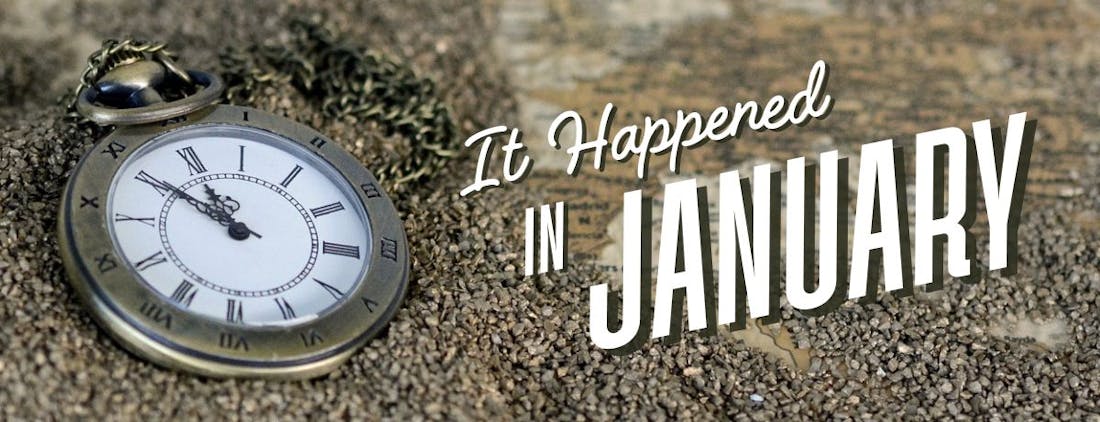
Browse Historical Events by Month: What Happened in January?
Tragic deaths, ravaged cities, and great acts of heroism. Discover what happened this month in history and the defining moments that shaped the world. Dates for earlier events may be approximate.
Note: Sources for the historical content shown, include research and reviews of relevant Online History Resources or printed material. When possible, we show a link to a source which provides additional or unique perspective about the event.
We do our best to provide accurate information but would appreciate being notified if any incorrect information is found. You may do so by using our Feedback link.
According to Roman tradition, Romulus dedicates the Temple of Jupiter Stator on the Capitoline Hill.
Leonidas I, King of Sparta, is born. Son of King Anaxandrides II and a member of the Agiad dynasty.
Thales of Miletus, a Greek philosopher often considered the first Western philosopher, dies in Greece.
The Greek city-state of Argos defeats Sparta at the Battle of Tiryns.
Greek playwright Aeschylus dies in Gela, Sicily.
Birth of the historian and philosopher, Herodotus, often called the "Father of History."
Pericles, influential Athenian statesman and general, dies during the Plague of Athens.
Birth of Roman statesman and orator, Publius Clodius Pulcher.
Julius Caesar, defying the order of the Roman Senate not to so, crosses the Rubicon River with his legion, famously uttering "alea iacta est" meaning "the die has been cast" and leading to the Roman Civil War. He was assassinated in 44 BCE.
Caesar decisively defeats Pompey at the Battle of Pharsalus.
Cleopatra VII of Egypt declares her son co-ruler as Ptolemy XV Caesarion with her.
The Julian Calendar takes effect, under the direction of Julius Caesar, replacing the traditional Roman calendar which had been introduced around the seventh century B.C. which followed the lunar cycle. It introduced a solar year of 365 days with a leap year every fourth year to keep the calendar aligned with the seasons.
The Julian calendar was a successful reform that remained the standard in the Roman Empire and the Western world for over 1,600 years until it was replaced by the more accurate Gregorian calendar in the 16th century.
Assassination of Julius Caesar by a group of Roman senators led by Brutus and Cassius.
Birth of the Roman historian and politician, Gaius Sallustius Crispus (Sallust).
Birth of the Roman poet and philosopher, Gaius Maecenas.
Octavian (later known as Augustus) celebrates a triple triumph in Rome for his victories in the Battle of Actium.
Gaius Julius Caesar Octavianus is granted the title "Augustus" by the Roman Senate, marking the beginning of the Roman Empire.
The Roman general Drusus completes the conquest of Raetia (modern-day Switzerland and Bavaria).
Jesus is presented at the Temple in Jerusalem in accordance with Jewish law.
Emperor Augustus renews the law against bachelors and childless marriages in Rome.












.jpg?format,compress&fit=crop&w=280&h=280&q=93)
.jpg?format,compress&fit=crop&w=280&h=280&q=93)












